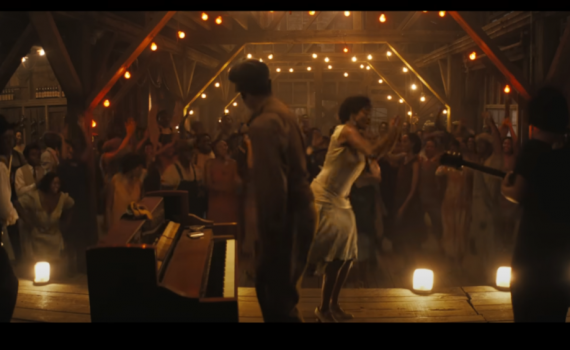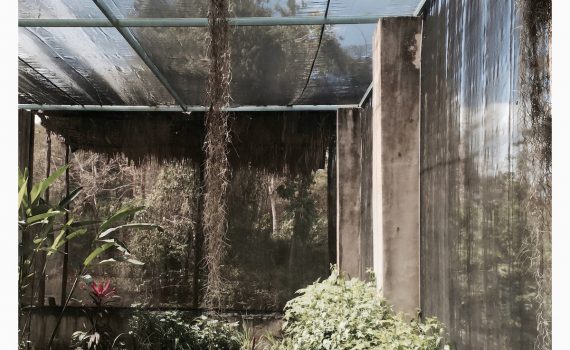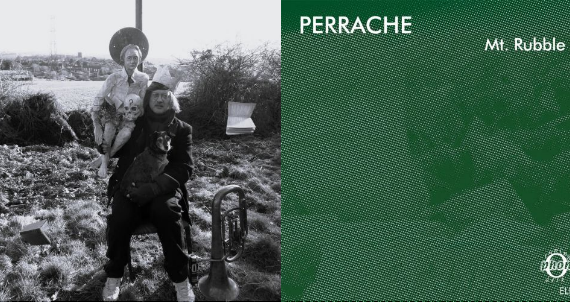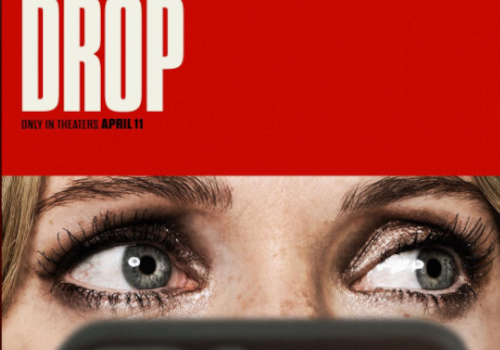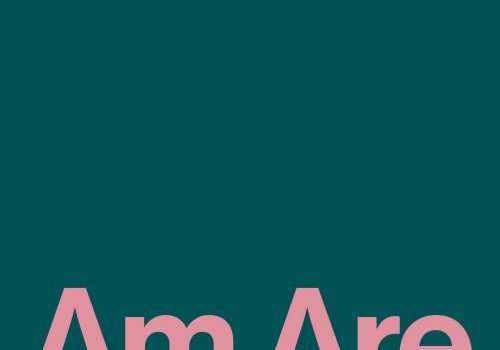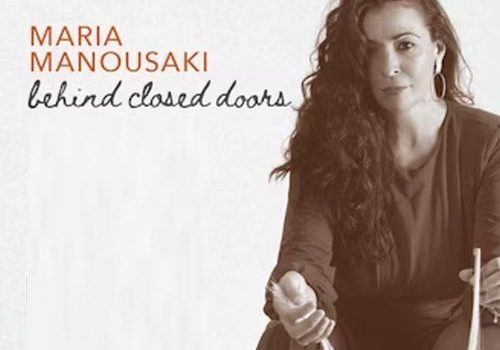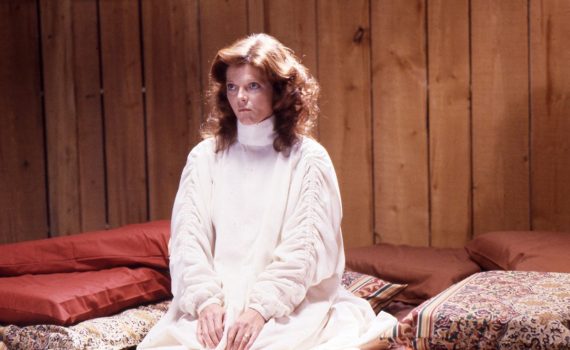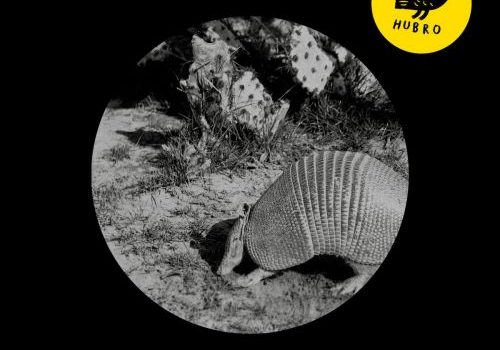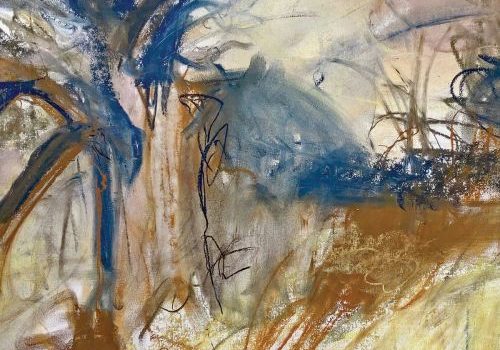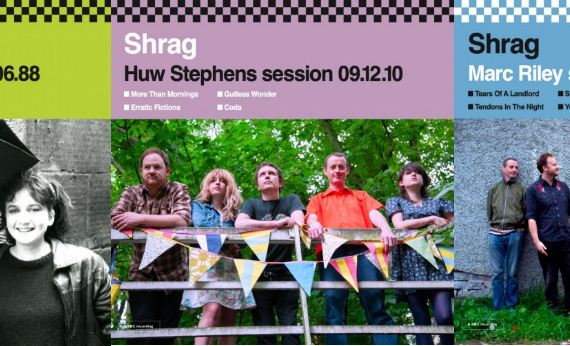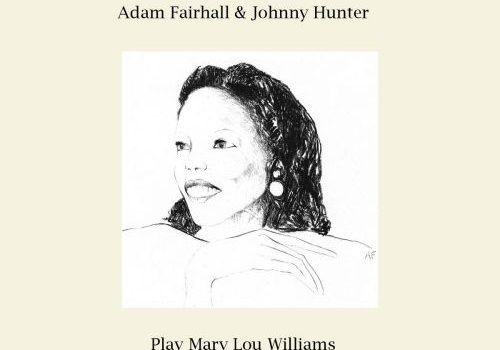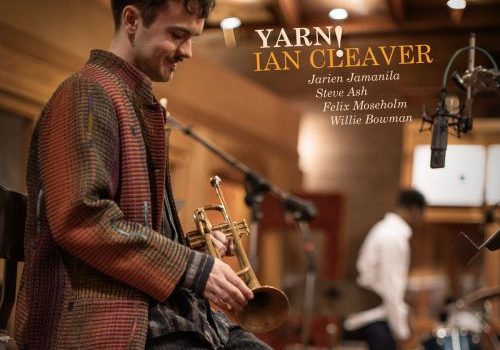The central cinematic thesis is that music is a mystical force that can be used either to heal or to harm. In this particular context the dichotomy goes from gospel, by which one can commune with God, to the blues, by which the guitar becomes a totem of the devil. It’s an idea as old as the Mississippi Delta, and allows the story to dig deep into the roots of African-American culture, by repurposing classic horror tropes and by the selective perversion of religious symbolism.
Monthly archives: April 2025
Kontra-Musik Both synthesiser specialist Andreas Tilliander and trumpeter Goran Kajfeš have been playing and recording for the best part of twenty-five years, so bring much experience and sensitivity to this unique collaboration. The album draws the two worlds of jazz and electronic ambience into one natural whole, and over eight submerged, cavernous tracks floats glimmering sparks and sultry smears of trumpet above an ever-evolving electronic soundscape. With track titles […]
Thanks to the more benevolent side of technological advances, recordings of a roaming and domestic provenance are no longer restricted to four-track strummers or those with the resources of rock royalty. Which, means there not many real limits upon those with advanced levels of imagination and ingenuity. As evidenced by the below divergent sonic dispersals.
"Single mum seeks cute, kind man with GSOH; let’s meet in penthouse restaurant for drinks, giggles and … MORE??" At least that’s how Violet hopes her evening will go, until ‘more’ turns out to be a mysterious text message revealing that her young son’s being held hostage and the only way she’ll get him back is to murder her rather promising date.
The title of the latest Am Are reflects 2022's Be Am, but is almost the antithesis of that light piano conversation with himself. Here, the ten tracks presented are made up of sessions with four different trios as well as a solo piece, a duo and a vocal track. It feels as though he has gone to the pub and it is filled with different groups of friends that are intent on different conversations, and he is flitting around like a social butterfly, dipping in here and dipping in there.
Recorded in Spain, away from their now globally-scattered homes, the group’s extended latter-day line-up, built around -- but not subservient to -- the long-running core membership of Jon Langford, Sally Timms and Tom Greenhalgh, have delivered an eclectic exemplar of well-matured musical mind-melding.
Perhaps because of other commitments, Behind Closed Doors is only her third album since 2014 and although coming from a place of loss and sorrow, still manages to sound uplifting and vivacious. The core quartet of violin, piano, bass and percussion is augmented across the seven tracks by vibes, trumpet, lute, oud and the resonant voice of Stratis Skarakis to ensure a varied and satisfyiong journey.
Using the likes of Hardanger fiddle, mouth harp and langeleik, the duo seems to have taken it upon themselves to take original recordings of these venerable pieces and manipulate them to their own ends, then thrusting them into a modern environment to see how they might exist amongst their younger siblings.
Second Sight WARNING — contains spoilers for Scanners, The Brood and also (oddly enough) Nightbreed. My first introduction to the work of David Cronenberg may not have been ideal, but it was probably fitting. It was through that classic promo shot of a dude with his head exploding from Scanners, in the pages of a much-thumbed copy of (I think) Starlog which got breathlessly passed round my classroom […]
It has been seven years since Building Instrument's previous album, not that the three members have been quiet in the downtime. Mari Kvien Brunvoll was involved in last year's Barefoot In Bryophyte, while Øyvind Hegg-Lunde has been involved with Erlend Apneseth and Electric Eye, among others; but when they and Åsmund Weltzien reconvene with their combination of glockenspiel, electronics, subdued beats, found sounds and dreamy vocals, you know that there is magic in the air.
The story behind this live album is quite a poignant one, with guitarist Billy Marrows originally writing the studio album Penelope as a legacy to his mother, who was dying of cancer. Thankfully, she heard some of the pieces before passing, but as a further memorial and as a way of raising money for charity, he chose to bring together a twelve-piece band to do full justice to the songs and perhaps to enable something beautiful to be wrung from such a sad circumstance.
Nick Godfrey’s Precious Recordings label continues to be one of the most reliable historical route-finders for visits inside the BBC vaults, in parallel to promising recent forays into releasing new recordings. From such navigation, fresh archival spotlights are put upon the familiar and near-famous, as well as those previously misplaced in the mists of musical time. Enter then, three 10-inch EP platters -- bolstered by bonus digital content -- from the latter camp.
Pianist Adam Fairhall has had an interest in her career since he was a youngster, and after performing one of her pieces at a show was approached by Martin Archer to record and album's worth of pieces spanning her oeuvre. With the accompaniment of Johnny Hunter on snare drum, he has handpicked a selection of ten numbers that shed light on the career of a unique player who was clearly happy in any jazz style.
Dutch trumpeter Ian Cleaver has put together a quintet for whom the sounds of Louis Armstrong and Chet Baker and the arrangements of Nelson Riddle are something to aspire to. With fine accompaniment from bass, drums, piano and sax / clarinet, his sweet, smoky trumpet tones are cast adrift evoking the sort of dancefloors where snappily dressed characters move sharply, cigarettes aloft and smiles beaming.
